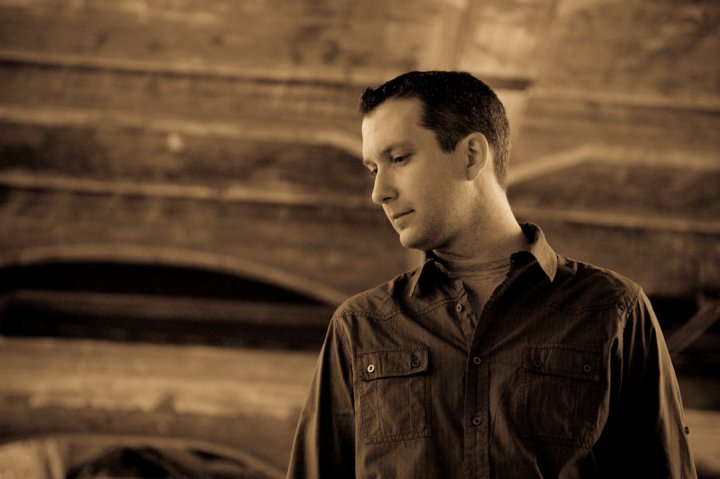Anxiety and God’s will
- At January 09, 2013
- By Nathan
- In Career & Life Planning
 0
0

J.I. Packer and Carolyn Nystrom wrote God’s Will: Finding Guidance for Everyday Decisions specifically for Christian people who feel stressed, anxious, and fearful as they face the future. Which is to say, that this book isn’t primarily intended for frantic atheists, tense secular folk, or calm and collected Christians either.
Christian? Check. Traumatized by this topic? Check. Then, you might want to read this book -and read it slowly.
Bringing up God’s will may seem to complicate the whole decision-making process. Less stress does sometimes result from reducing the number of wills involved. Eject God straightaway and you have one less will to worry about; or so some people say. But then again, you might end up with billions of little gods running wild, a whole lot more anxiety in this world, and heavy-handed governments rising up all around to control the chaos.
That last sentence was a bit on the heavy side. But perhaps it needed to be said nonetheless.
Career counsellors who don’t believe in God (or are not allowed to talk about it if they do) naturally omit a thorough discussion about discerning God’s will. The title that comes up again and again, popping up all over the place, is rather something like this: Bob’s Will: Helping Bob Figure Out What He Wants to do With His Life. Admittedly, this formula usually works well, for men and women with various names, and provides a genuine service to many people. Unless, of course, it turns out that “Bob” is considering, say, joining a gang and selling drugs to kids down the street.
It will come as no surprise, that a careful reading of J.I. Packer’s and Carolyn Nystrom’s book would lead to the conclusion that routinely destroying other people’s lives is not God’s will. But it might still be Bob’s.
Most Christians, of course, are not sitting at home in front of their computers agonizing over whether or not to join the Hell’s Angels or another gang promoting organized crime. “Should I sell heroin or cocaine this year?” Decisions, decisions. To be fair, very difficult situations can arise – quite apart from any reference to criminal activity. And if you are faced with trying to choose what is best, when all of the options look bad, begin towards the end of this book.
Otherwise, begin at the beginning. Begin with a discussion of Psalm 23. Begin by reflecting on words of comfort and reassurance if you are “running silly” or “running scared.” From there, you will be reminded that although God will guide you, this doesn’t mean that it is going to be easy or that your next step will be immediately obvious. Shortly after that, there is an invitation to reflect on Romans 12:1-2 and consider that your level of internal spiritual health will determine in part how well you are able to make wise decisions in daily life.
And then, from chapter four on, the balancing act begins. The authors are attempting to simultaneously guide anxious Christians away from a “superspiritual” and a “subspiritual” approach to discerning God’s will for their lives.
On the one hand, there is a strong emphasis on trying to understand what God has already revealed in the Bible. There is also encouragement to actively seek wisdom, to consult friends, and generally, to make good use of all the God-given abilities, insights, and resources at your disposal. But, at the same time, there is a cautious openness to more direct forms of guidance (i.e. dreams, visions, words of wisdom, an inner sense, etc.).
Balance is required. It isn’t a good idea to totally tip one way or the other. That is the point. Endless hazy talk that begins to sound like spiritual mumbo-jumbo isn’t the answer. And neither is an extreme figure-it-all-out-yourself attitude.
The anxiety and fear observed among Christian people is, in the authors’ judgement, presently due to an inappropriate and unbalanced emphasis on special forms of guidance. Would you agree? The result is that if nothing spectacular, sensational, or out of the ordinary happens many struggle to make decisions with confidence. People don’t feel like they are been led. They stand still – stuck – when they should be moving ahead.
But what has happened in the past may not necessarily happen in every situation in the future. Keep this point in mind. Praying is always a good idea. But praying and expecting God to show you exactly what to do, and in no uncertain terms, according to your preferred method, well, that might be a tad unrealistic and cause for unnecessary anxiety and concern.
This, at least as far as I can tell, is what J.I. Packer and Carolyn Nystrom are trying to say. And this is also, I think, helpful advice.
While come mistakenly avoid talking about God’s will, Christians (myself included) sometimes approach this topic in an inappropriate and unhelpful way.
© Career & Life Direction 2013. All rights reserved.

































